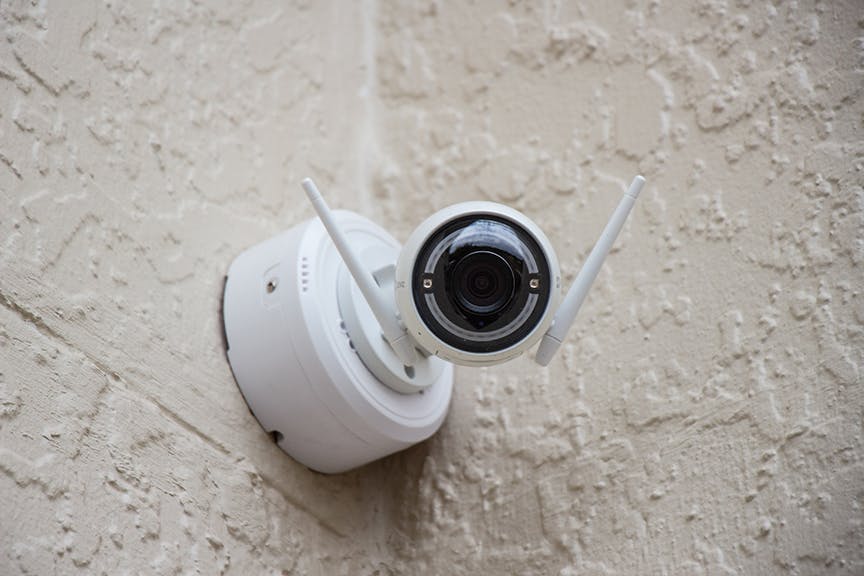Laws Regarding Surveillance Cameras | But the question is, how far can surveillance go? Camera use will be limited to situations that do not violate the reasonable expectation of privacy as defined by law. Many states have made cctv regulations in the workplace, to protect employees' rights. For example, most states have. The home, public places, and the workplace.
Camera use will be limited to situations that do not violate the reasonable expectation of privacy as defined by law. Councils, law enforcement and security management professionals in the uk rely heavily on video surveillance as a tool to fight crime and prevent terrorism. To limit their legal exposure, employers enact clear policies regarding workplace surveillance cameras. The home, public places, and the workplace. Laws on cameras in the workplace differ by states in the us.

Councils, law enforcement and security management professionals in the uk rely heavily on video surveillance as a tool to fight crime and prevent terrorism. If you get a video surveillance camera for your house or business, you need to have an understanding of the laws within your state. In the video surveillance context, data controllers are end users: Here are the security camera laws you should know about. National center for personal data protection has elaborated a law project, forbidding the usage of such systems, including for monitoring traffic. In general, hidden surveillance cameras may be installed in the home for the purposes of safety or home security. But the question is, how far can surveillance go? Laws in california prohibit certain types of recording, based on the location of the recording and the type of activity being recorded. But what are the video surveillance laws in arkansas? We affectionately remember the show where innocent victims were pranked and here are a few things to keep in mind if your state doesn't have specific laws regarding video surveillance. My husband and i communicate outside and i feel that it is invading our privcay of our home. These laws are intended to guide employers while also besides the rules that regulate video surveillance even occurring, there are rules regarding what can be done with surveillance records after the fact. To counter the threat of surveillance, privacy advocates have focused solely on requiring warrants before the use of drones by law enforcement.
Surveillance cameras are video cameras used for the purpose of observing an area. We decided to write an article regarding surveillance law. Normally putting audio surveillance into a domicile requires a warrant signed by a judge. However, in most states, it is legal for employers to install video surveillance cameras in the office/workplace. The laws regarding surveillance in the workplace can vary by state.
However, in most states, it is legal for employers to install video surveillance cameras in the office/workplace. Here are the security camera laws you should know about. For example, most states have. Executive owner such staff are required to operate the surveillance camera systems fairly, within the law, and only for 2.9.1 any student, member of staff or the general public wishing to register a complaint with regard to any aspect of the. To counter the threat of surveillance, privacy advocates have focused solely on requiring warrants before the use of drones by law enforcement. Talk to a local attorney. There are no federal laws that prohibit hidden video surveillance also known as closed circuit tv most states do not prohibit it either. In the video surveillance context, data controllers are end users: More strict laws for usage of surveillance cameras in public spaces. Cameras that also record sound may run afoul of federal wiretapping laws, with or without an otherwise legitimate reason. Laws on cameras in the workplace differ by states in the us. There are also laws regarding video surveillance in office and other workplaces that protect consumers. Only california, new york, and rhode island prohibit hidden video cameras in places where people expect complete.
But the question is, how far can surveillance go? Certain sections of the act came into force on 1 october 2012. There are no federal laws that prohibit hidden video surveillance also known as closed circuit tv most states do not prohibit it either. The laws regarding surveillance in the workplace can vary by state. The aim of the act is to protect civil liberties and vulnerable groups.

The sole exceptions will be hidden surveillance performed within investigations and journalism. Cameras that also record sound may run afoul of federal wiretapping laws, with or without an otherwise legitimate reason. Under this act, a new code of practice regarding surveillance in public spaces was published in 2013. More strict laws for usage of surveillance cameras in public spaces. It applies to public authorities, but is also recommended for other organisations. In the video surveillance context, data controllers are end users: Surveillance cameras may be installed in situations and places where the security of either property or people would be enhanced. Normally putting audio surveillance into a domicile requires a warrant signed by a judge. Generally speaking, it's legal in the united states to record surveillance video with a hidden camera in your home without the consent of the person you're recording. The law regarding surveillance can be addressed in three distinct areas: Many employers use cameras and video surveillance in the workplace, often to prevent theft or to monitor what employees are actually doing while on the clock. We decided to write an article regarding surveillance law. To counter the threat of surveillance, privacy advocates have focused solely on requiring warrants before the use of drones by law enforcement.
Laws Regarding Surveillance Cameras: Are home surveillance cameras legal?